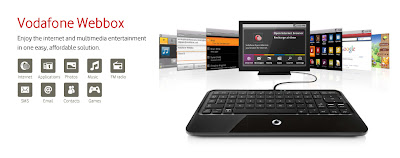Ways the Google-Motorola Deal Could Change The Game
Business analysts and tech journalists are having an absolute field day penning articles and examining the latest moves to rock the mobile world: Google just bought Motorola Mobility. Each writer thinks he/she knows exactly what Google should do next in order to make the deal successful, but only Google itself knows for sure what the master plan is behind this $12.5 billion dollar purchase and what lies ahead. However, I can’t help but ponder 3 unexpected ways that Google could actually change the overall mobile game, if it wanted to, via this new extension of power – and what those changes could mean to businesses and to mobile consumers.
Now, most TAP readers might no longer be too impressed with Motorola phones – the handset that was once the stuff of rap lyrics. Jay-Z’s “Motorola two-way page me” has long since lost its cache (though still respected in the Bluetooth arena) as more aggressive and slicker new entrants have rolled out mobile device products. But there could just be some interesting moves made due to the union of these two companies if Google decides to truly think out of the box.
1) the ante gets upped even further on smartphone wars as software and hardware come together in an unprecedented way – and it could mean a much needed breath of fresh air in marketing and advertising approach of smartphone makers. Analysts speculate that Google primarily purchased Motorola for its software patents so that it can compete more effectively and protect the Android ecosystem and that it will unload Motorola’s hardware business quick, fast and in a hurry.
But what if it doesn’t? What if it creates a synergetic behemoth of mobile phone power and profits. The mobile phone industry is projected to make billions and billions in the next couple of years alone, thus whoever rules (or is at least one of the major rulers) of that industry will make untold fortunes. In fact, nearly one-third of all 73.3 million U.S. smartphone users will own phones that run Google’s Android platform this year, up from 24% in 2010 and only 6% in 2009, according to eMarketer.
Controlling a portion of the handset game within those figures, makes for interesting potential market positioning. But to ensure growth and long-term market leadership (again, only if the handset biz is kept) new tactics might need to be employed. Now, if Google is watching Nielsen Mobile’s analytics that show that the market of color offers the smartphone industry its best opportunity for growth, given that the segment owns and buys smartphones at a faster clip than any other demographic in our nation, might we finally see more expanded marketing and advertising efforts in a country which is becoming more brown with each day anyway? If so, that could mean a a much-needed boon for diverse media outlets. Wishful thinking? Perhaps but Google doesn’t think like most companies.
2) if Google pulls on Motorola’s strength and expertise, Google could change the connected home and TV game much faster ever imagined. If the tech giant wants to use Android as a way into the home, Motorola’s home automation, set-top box and broadband gear businesses now gives Google a platform from which to make serious moves. This is about Google now potentially being the layer to connect all kinds of appliances in your home via Android, thanks to tech acquisitions on which Motorola was already at work. This is big.
Think about the ability to, as GigaOm.com pointed out, have a device that controls everything from home security to energy to music. Bill Gates predicted it, Google seems to be on the threshold of making it reality. If this were to happen, the ubiquity that Android could have and the new forms of commerce that could emerge and how that would affect your purchase power and convenience, is basically mind-boggling. The Motorola purchase also makes Google the king of set-top boxes for cable, making certain cable providers beholden to it for its business. Could Google force a change in the very pay-TV structure we know, and don’t necessarily love, now? Only time will tell.
3) If, and again that’s a big if, Google actually keeps Motorola’s handset operation given that it knows quite little about device making; mobile marketers and advertisers could actually see a fast-forward in industry standards being set as the tech giant and digital advertising titan takes the lead in resolving more of the technology issues around delivering ad creative to mobile devices due to greater incentive and opportunity via its now extended reach. What if it could eventually rival and/or overtake Apple’s system? If so, consumers would able to receive brand messages and value-add that could potentially impact lifestyle. Many businesses would then feel an even greater urgency about mobile. But how many are truly prepared right now to interact across mobile in more creative and innovative ways? 48% of customers browsed/researched via mobile device while in-store in 2010 vs. 27% in 2009 (source: eMarketer). Ignore trends and one gets left behind.
One thing is certain, the reverberations of the Google-Motorola deal have only just begun to be felt. As they unfold even further, consumers and businesses will have to be ready to react and respond. Such is life in the new era. Welcome to the tech game.


Comments
Post a Comment
Be sure to check back again because I do make every effort to reply to your comments here. Karibu :)